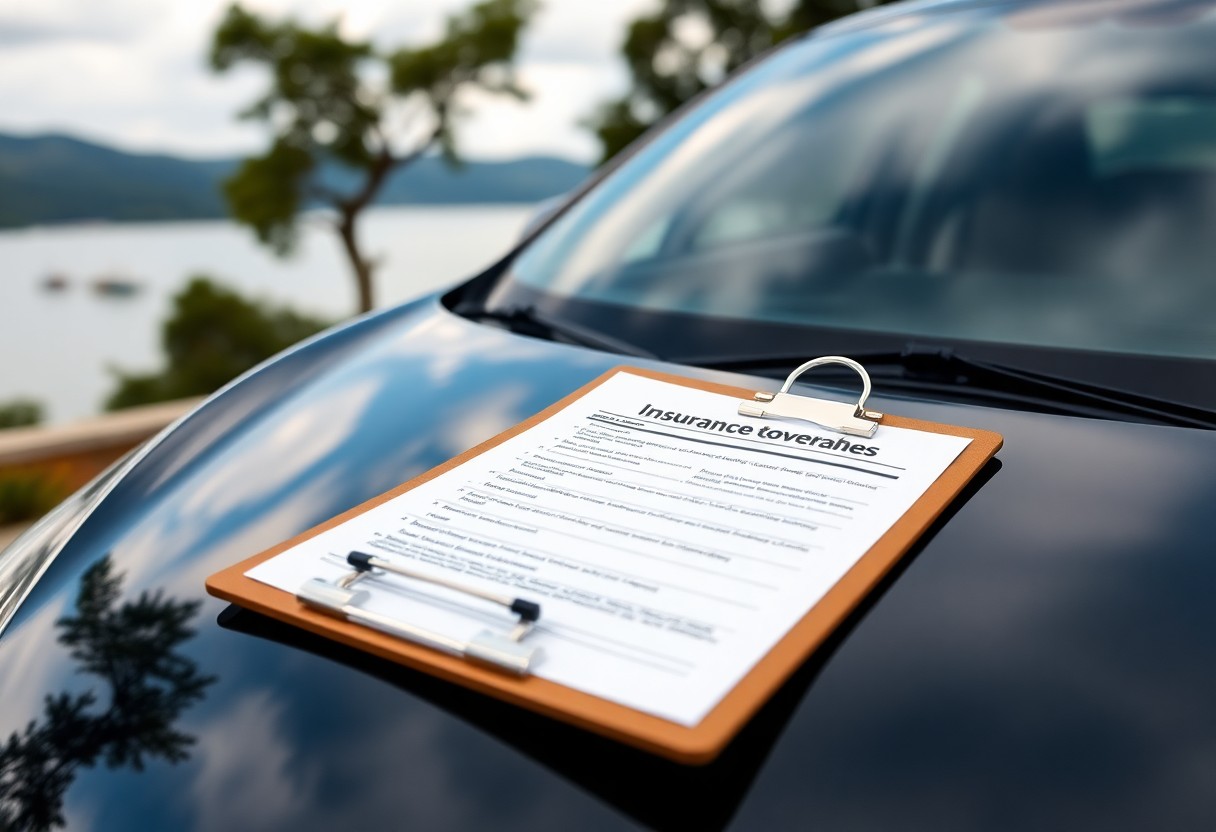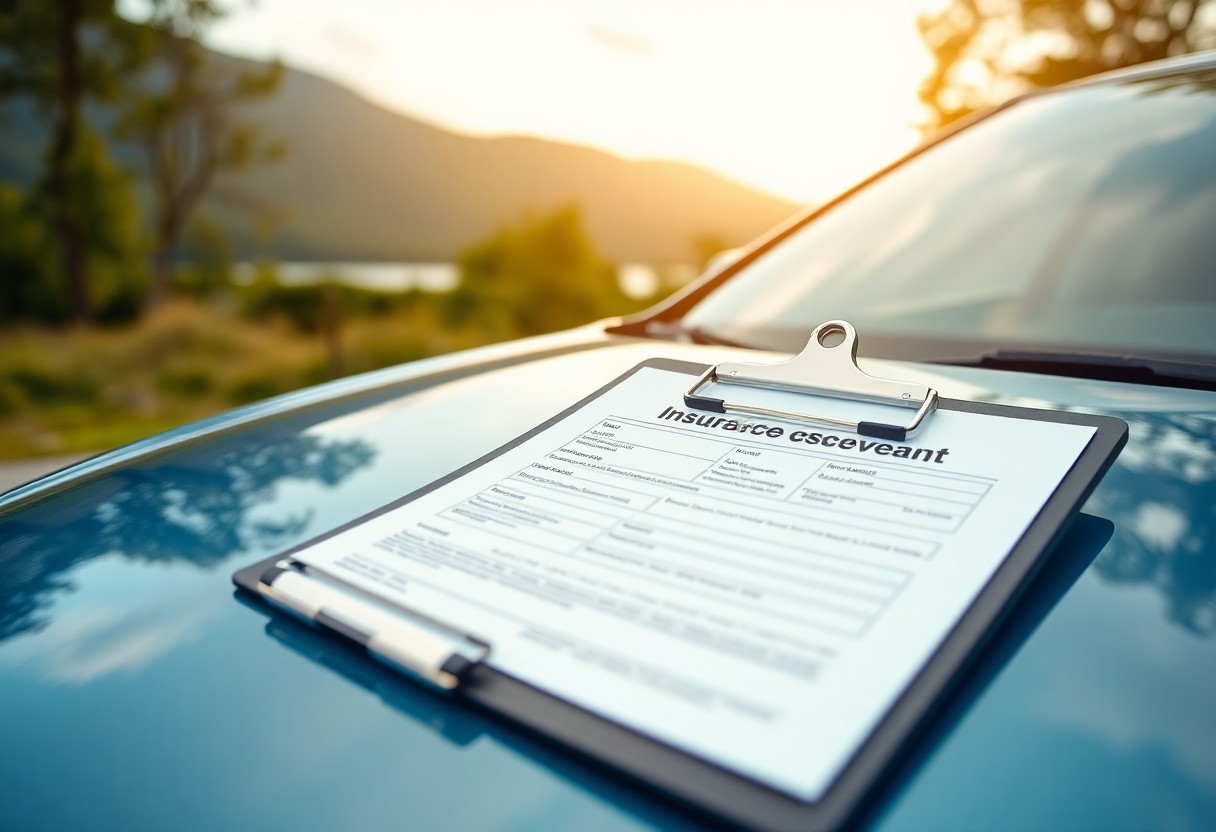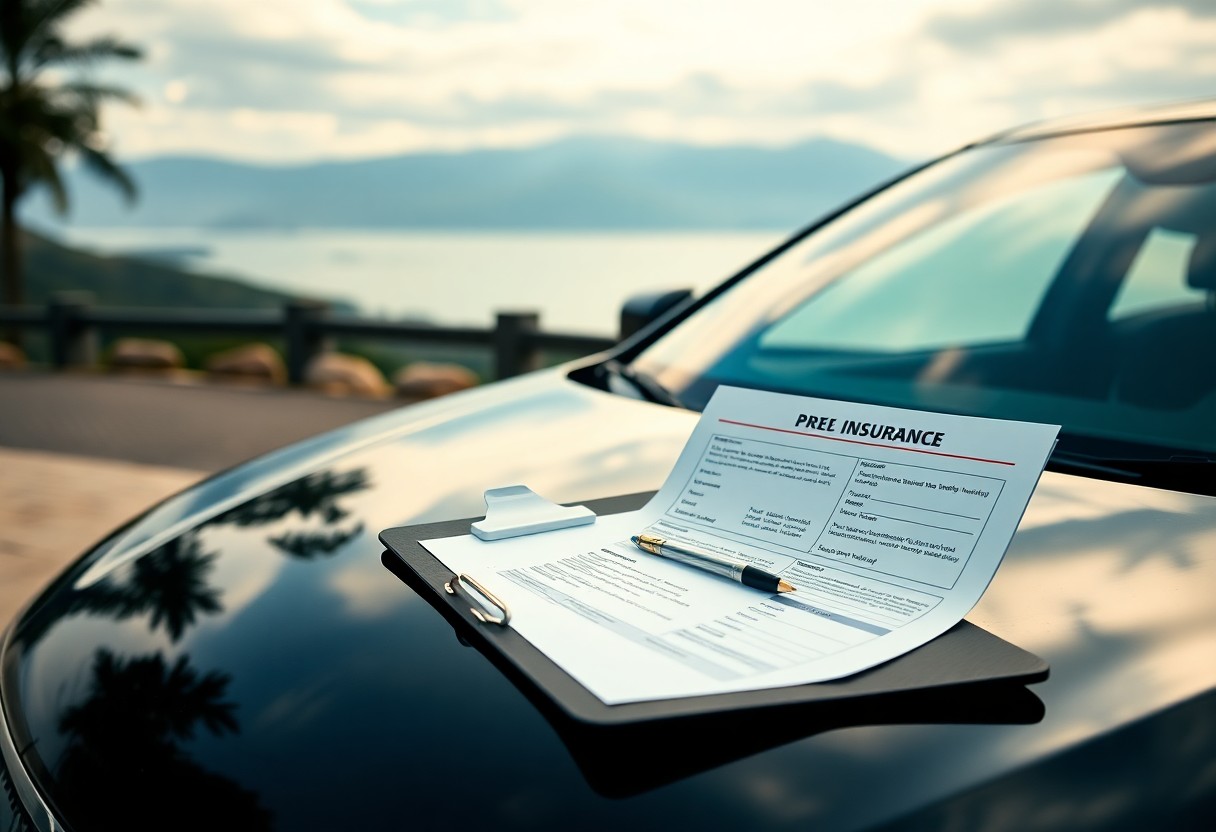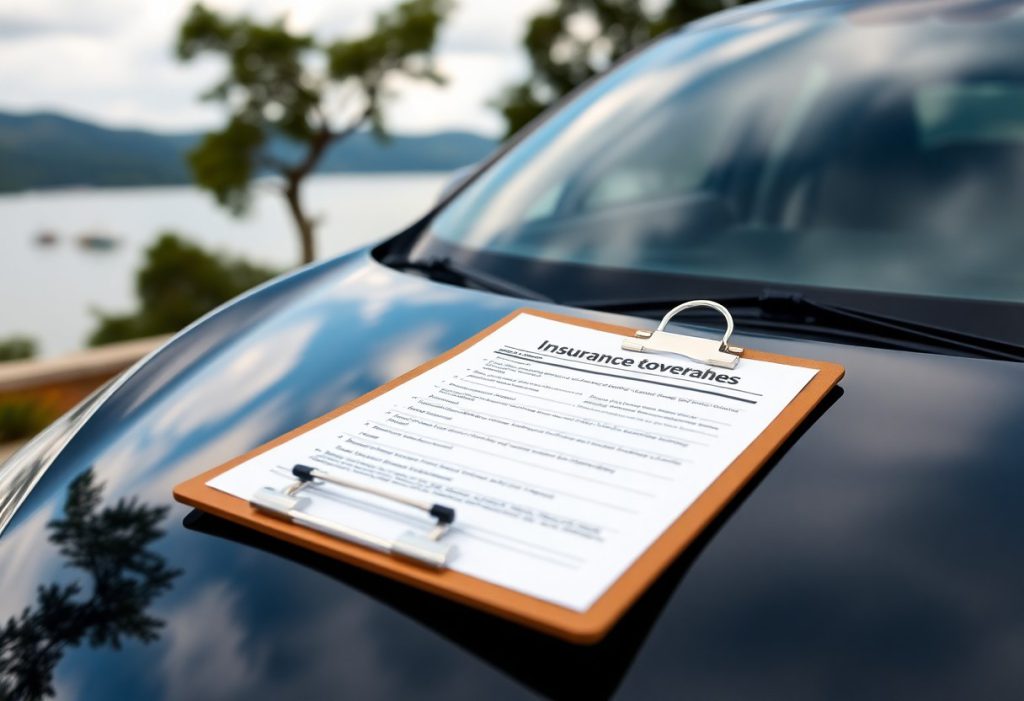Grasping the intricacies of rental car coverage is essential not only for effective travel budgeting but also for ensuring a hassle-free journey. While it’s possible that your current auto insurance policy includes coverage for rental vehicles, understanding the specifics is critical. When renting a car, your personal auto insurance may extend to cover important aspects such as collision, comprehensive, and liability coverage, which can significantly reduce additional charges for insurance from the rental company. Nevertheless, it’s crucial to examine your policy limits closely, as coverage gaps can leave you financially vulnerable. To protect yourself adequately, consult with your insurance provider prior to your next rental to ensure comprehensive coverage for both the rental vehicle and any potential liabilities that may arise.

Maximizing Your Understanding of Primary Insurance Coverage for Rental Vehicles
While your personal auto insurance may indeed extend to cover rental cars, the limits and types of coverage can vary widely between different policies. Generally, standard insurance policies include crucial protections such as liability, collision, and comprehensive coverage, all of which can shield you from risks while operating a rental vehicle. However, it’s imperative to be aware of specific exclusions that might apply, which could potentially compromise your coverage during critical incidents. Therefore, it’s wise to delve into the details of your insurance policy to ensure thorough protection throughout your rental experience.
In-Depth Breakdown of Essential Components of Basic Car Insurance
To ensure you are adequately protected on the road, standard auto insurance policies typically encompass several vital components necessary for any driver. These policies often provide liability coverage up to $100,000 for injuries per person and $300,000 per accident. Furthermore, you may have options for collision, comprehensive, and personal injury protection, all of which are designed to address various facets of your insurance needs. This comprehensive coverage grants you the peace of mind to drive confidently, whether you are in your own vehicle or a rental, knowing that you are safeguarded against potential financial setbacks.
Key Elements of Rental Car Coverage You Need to Know
When you decide to rent a car, it’s typically understood that your personal auto insurance policy will extend to cover collision and comprehensive damages to the rental vehicle. This existing coverage can save you between $20 and $30 per day on insurance expenses charged by the rental agency. However, it is crucial to remember that higher deductibles might apply if you utilize your personal insurance for rental vehicles, which could result in out-of-pocket costs if you need to file a claim.
Moreover, it’s essential to familiarize yourself with the fundamental aspects of rental car coverage, including the policy’s geographical limits and duration. Most insurance policies generally extend coverage for rental vehicles for up to 30 days within the United States and Canada, offering protection against theft, vandalism, and weather-related damage. However, be cautious, as certain vehicle types or usages may be excluded from this coverage, potentially leaving you exposed in certain situations.
Diving Deep into the Various Types of Rental Car Insurance Available
When you rent a vehicle, it’s crucial to explore the myriad insurance options available to you, as each offers specific protections for both you and the rented car. The primary categories of coverage include liability coverage, collision damage waivers, personal accident insurance, and personal effects coverage. Understanding these distinctions is vital for making informed decisions regarding your rental car insurance, ensuring that you select comprehensive protection tailored to your travel needs.
| Insurance Type | Coverage Details |
|---|---|
| Liability Coverage | Protects against damage to others |
| Collision Damage Waiver | Covers rental car damage |
| Personal Accident Insurance | Medical expenses coverage |
| Personal Effects Coverage | Protection for belongings |
| Roadside Assistance | Emergency help services |
Examining Liability Coverage Options for Rental Vehicles
Among the various insurance options available, liability coverage is essential as it acts as your primary safeguard against third-party claims in the unfortunate event of an accident. You can choose to rely on the liability coverage offered by your existing auto insurance policy or consider the rental company’s supplemental liability insurance (SLI), which may provide enhanced protection of up to $1 million, depending on your individual needs and circumstances.
Comprehending Collision and Comprehensive Protection for Rentals
When it comes to practical matters, collision and comprehensive protection are crucial for shielding your rental vehicle from physical damage due to accidents, theft, vandalism, and natural disasters. Your personal auto insurance may extend these essential coverages to the car you rent, granting you peace of mind throughout your travels.
In fact, collision and comprehensive protection provides complete coverage for your rented vehicle. This includes protection against hit-and-run incidents, falling objects, and damage caused by severe weather conditions. While your deductible typically applies to claims, you can bypass this cost by selecting a collision damage waiver from the rental company, which simplifies the claims process and provides added convenience.

Unpacking Additional Coverage Options for Rental Cars
A variety of supplementary insurance options can be considered to enhance your rental car coverage for greater protection. These options typically encompass personal injury protection, medical payments coverage, and roadside assistance, each addressing specific needs that can fill significant gaps in your existing coverage.
Exploring the Benefits of Personal Injury Protection
This type of coverage expands to encompass medical expenses, lost wages, and essential services following an accident, irrespective of fault. Typically, this insurance covers up to 80% of medical expenses and can protect you, your passengers, and even pedestrians involved in the incident. Coverage limits generally range from $10,000 to $50,000, providing a financial safety net for unexpected medical costs that may arise.
Comprehensive Insights on Medical Payments Coverage
In most states, this coverage is designed to assist with medical bills for you and your passengers following an accident, regardless of fault. It usually covers immediate medical expenses, hospital visits, and emergency services that may occur after an incident.
With Medical Payments Coverage, you can benefit from direct payments for medical expenses without the need to wait for fault determination, which can be incredibly advantageous in urgent situations. This coverage can also assist with your health insurance deductible and typically offers limits ranging from $1,000 to $25,000. The flexibility to utilize this coverage even if you have health insurance makes it a valuable addition to your rental car protection strategy.
Specialized Coverage Options for Rental Vehicles Explained
To ensure comprehensive protection while renting a car, understanding specialized coverage options available is essential. These insurance products are specifically designed to fill distinct coverage gaps and provide enhanced protection beyond your standard auto policy. Your choices may include collision damage waivers, personal accident insurance, and personal effects coverage, each serving a unique role in your overall rental protection plan.
Delving into the Collision Damage Waiver Advantage
A Collision Damage Waiver (CDW) offers you comprehensive protection against damage to your rental vehicle. This option effectively absolves you of financial responsibility if the rental car is damaged or stolen. While your personal auto insurance may cover certain damages, opting for CDW provides zero-deductible coverage and prevents claims on your personal policy that could potentially lead to increased premiums.
The Vital Role of Personal Accident Insurance
In addition to vehicle protection, Personal Accident Insurance is essential as it covers medical expenses for you and your passengers in the event of an accident during your rental period. This coverage can offer up to $250,000 in accidental death benefits and effectively supplement your existing health insurance coverage.
Moreover, Personal Accident Insurance may cover ambulance expenses, emergency medical evacuation, and daily hospital benefits. Since your standard auto insurance might not address these specific medical costs, this additional coverage can be invaluable for your rental car protection strategy. Importantly, this coverage applies regardless of who is at fault in an accident.
Evaluating Personal Property Protection Considerations
Even if you have car insurance, it’s crucial to recognize that your personal belongings in a rental car may not be fully protected. Typically, your standard auto insurance provides limited coverage for personal items, which can pose risks of potential losses during your travels. Understanding the extent of protection for your belongings allows you to make informed decisions regarding any additional coverage you may require.
Understanding the Benefits of Personal Effects Coverage
Approximately 80% of rental car companies offer Personal Effects Coverage, which protects your belongings for up to $500-$1,500. This coverage applies to personal items such as laptops, phones, cameras, and luggage in the event of theft or damage. Additionally, your homeowners or renters insurance may provide further protection for your personal items while traveling, adding an extra layer of security to ensure your valuable possessions are safeguarded.
Awareness of Coverage Limitations for Personal Effects
Personal Effects Coverage does come with specific restrictions that you should be aware of. Most policies exclude certain high-value items, such as jewelry, cash, and business equipment, meaning you might not be fully covered for these valuables. Furthermore, your coverage may have a per-item limit and a deductible that must be met before the insurance compensates you for any losses.
With standard personal effects coverage, you could encounter limitations on claim amounts and types of items covered. Typically, this coverage only applies during the rental period and while in the rental vehicle. You’ll need to provide proof of ownership and value for any claimed items, and some policies may require a police report for theft claims to ensure proper documentation.

Understanding the Importance of Emergency Services in Rental Car Insurance
It’s crucial to note that not all rental car insurance policies include emergency assistance coverage. While your personal auto insurance policy might offer these services, the coverage limits and availability can vary. Before declining coverage from the rental company, it’s wise to check if your policy includes 24/7 emergency support, towing services, and lockout assistance, ensuring you are adequately protected in case of an emergency.
Examining Roadside Assistance Options for Your Journey
Before you embark on your journey, be sure to clarify the specifics of your roadside assistance coverage. Common services often include battery jump-starts, tire changes, fuel delivery, and towing. You can obtain this coverage through your personal auto insurance, credit card benefits, or by purchasing it as part of the rental company’s package, typically costing between $5 and $15 per rental day.
Understanding the Service Limitations Associated with Roadside Assistance
Before relying on roadside assistance coverage, it’s essential to be aware of its limitations. Most policies impose specific mileage restrictions for towing and may not cover all geographic locations. Additionally, your coverage might exclude off-road incidents or service in remote areas, which could leave you without support in certain scenarios.
A typical roadside assistance plan will often include limits on the number of service calls you can make each year and the maximum coverage amounts available. You may encounter additional charges beyond the established limits, and some services might require out-of-pocket payment with reimbursement later. It’s also essential to recognize that response times can vary based on your location and current weather conditions, which may affect the level of service you receive.
Empowering Yourself to Make Informed Decisions About Rental Car Insurance
When considering your car insurance coverage for rental vehicles, it’s clear that the specific terms of your policy play a pivotal role in determining your level of protection. It’s crucial to meticulously review your policy details and reach out to your insurance provider to fully comprehend your exact coverage limits. Generally, your personal auto insurance may cover collision, liability, and comprehensive protection for rental cars, but gaps can still exist. Additionally, it’s wise to consider your credit card benefits and existing coverage before opting for any additional rental car insurance. If you discover coverage gaps, purchasing supplemental insurance from the rental agency can help ensure complete protection for your rental experience. Armed with this knowledge, you’ll be equipped to make smart, informed insurance choices for your next car rental, ultimately leading to a worry-free travel experience.
Addressing Common Questions About Rental Car Insurance
Q: Does my personal car insurance automatically cover rental vehicles?
A: In most scenarios, personal car insurance policies extend coverage to rental cars when rented within the United States. Typically, your collision and comprehensive coverage applies to rental vehicles. However, the limits and terms from your personal policy directly transfer to the rental car. It’s always prudent to contact your insurance provider to confirm specific coverage details prior to making your rental.
Q: What potential gaps in rental car coverage could exist in my personal auto policy?
A: Your personal auto insurance may not cover various aspects, including loss of use fees charged by rental companies, diminished value claims, or administrative fees. If you are renting internationally, separate coverage is typically required. Furthermore, the use of rental cars for business purposes may also not be covered under personal policies. It’s essential to verify these specific areas with your insurance provider to avoid potential surprises.
Q: Do credit cards provide coverage for rental vehicles?
A: Many credit cards offer rental car coverage when you pay for the rental using that card. Generally, this coverage is limited to collision damage only and acts as secondary insurance. The coverage activates after you decline the rental company’s collision damage waiver. Benefits can vary significantly based on the card issuer, so it’s important to thoroughly review your card’s specific coverage details to ensure you understand what is included.
Q: What insurance should I consider purchasing from the rental car company if my personal insurance already covers rentals?
A: If your personal policy has low liability limits, it may be wise to obtain supplemental liability insurance. Additionally, a loss damage waiver (LDW) can be beneficial if you wish to avoid making a claim on your personal insurance, especially if you prefer not to risk raising your premiums. Personal effects coverage is also worth considering to protect your belongings in the rental car, particularly if your homeowners or renters insurance does not offer adequate coverage.
Q: How does the deductible function when using personal insurance for rental cars?
A: Your personal auto insurance deductible will apply to any claims filed for rental cars. For example, if you have a $500 deductible and damage the rental car, you will be responsible for paying the first $500 in repair costs. Subsequently, the insurance company will cover the remaining expenses. This differs from rental company coverage, which often has no deductible but tends to be more expensive upfront due to higher daily rates.
The Article: Does your car insurance cover rental cars details on coverage and what to know appeared first on https://rentacar24.org/
The Article Car Insurance Coverage for Rental Cars: What You Need to Know Was Found On https://limitsofstrategy.com



Your deep dive into rental car coverage feels incredibly timely, especially as travel tends to ramp up during holidays or vacation seasons. I remember the first time I rented a car for a weekend trip; I was overwhelmed by all the options available at the rental counter and ended up opting for their insurance, not fully understanding what my personal auto policy covered. Looking back, I realize how much time and money I could have saved had I taken the time to clarify my insurance details beforehand.
Your insights on rental car coverage resonate deeply, especially in a world where travel can quickly become unpredictable. I recall a recent experience where I had assumed my personal auto insurance provided full coverage for a rental only to discover a significant gap when it came to liability. It was a stark reminder of the importance of understanding the fine print in insurance policies.